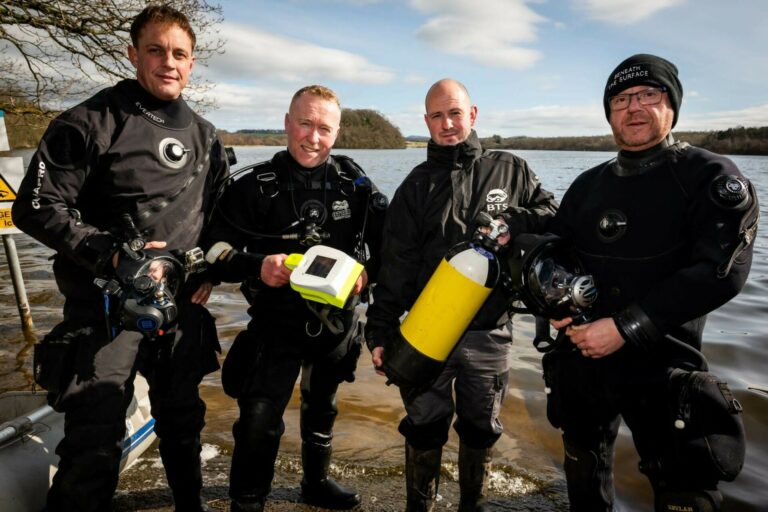The UK’s only volunteer missing-persons dive-team has been gifted a £6,000 AquaEye handheld sonar scanner by the device’s Canadian manufacturer VodaSafe.
The divers have also taken on the role of AquaEye ambassadors in the UK, and are on a new mission to show that the unit can not only enable faster recovery of bodies but potentially save lives too.
The handover took place at Gartmorn Dam, Alloa in Scotland, where the Beneath The Surface (BTS) divers located the body of missing angler Greig Stoddard earlier this year.
Starting from New Year’s Day the Lancashire-based divers made three successive weekend journeys to the Scottish site before they eventually managed to locate Stoddard – the full story is on Divernet.
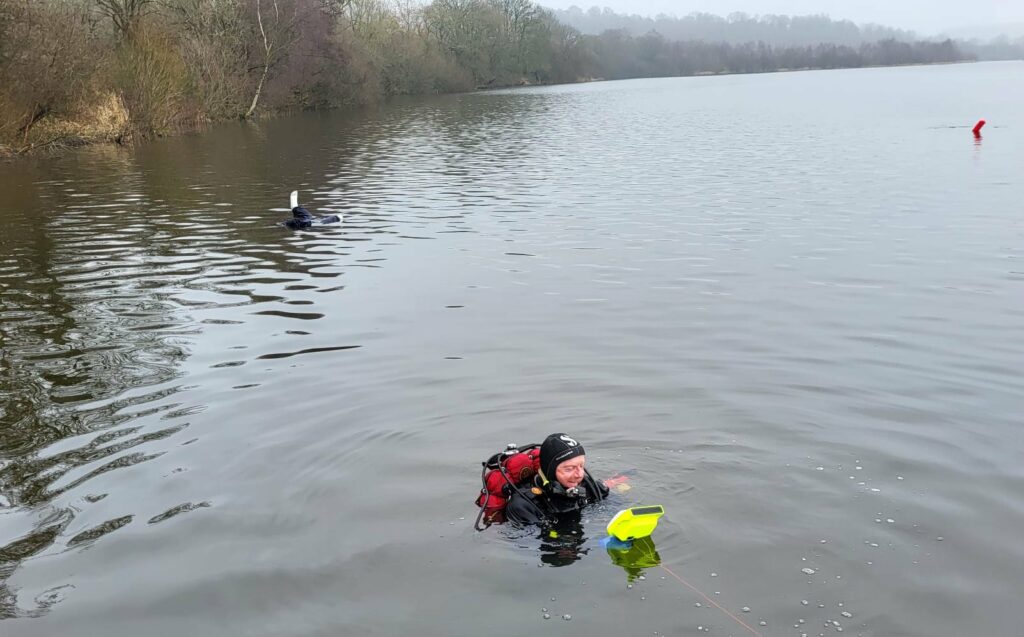
The divers found the body using their own sonar unit, but during the search they had been impressed when they had the chance to borrow an AquaEye briefly. “We did get an indication but didn’t know how to narrow down the area at that time,” says Beneath The Surface leader Phil Jones.
Greig’s cousin Thomas, grateful for the closure the volunteer divers had brought to the family, subsequently launched a crowdfund appeal to help them buy an AquaEye for future use.
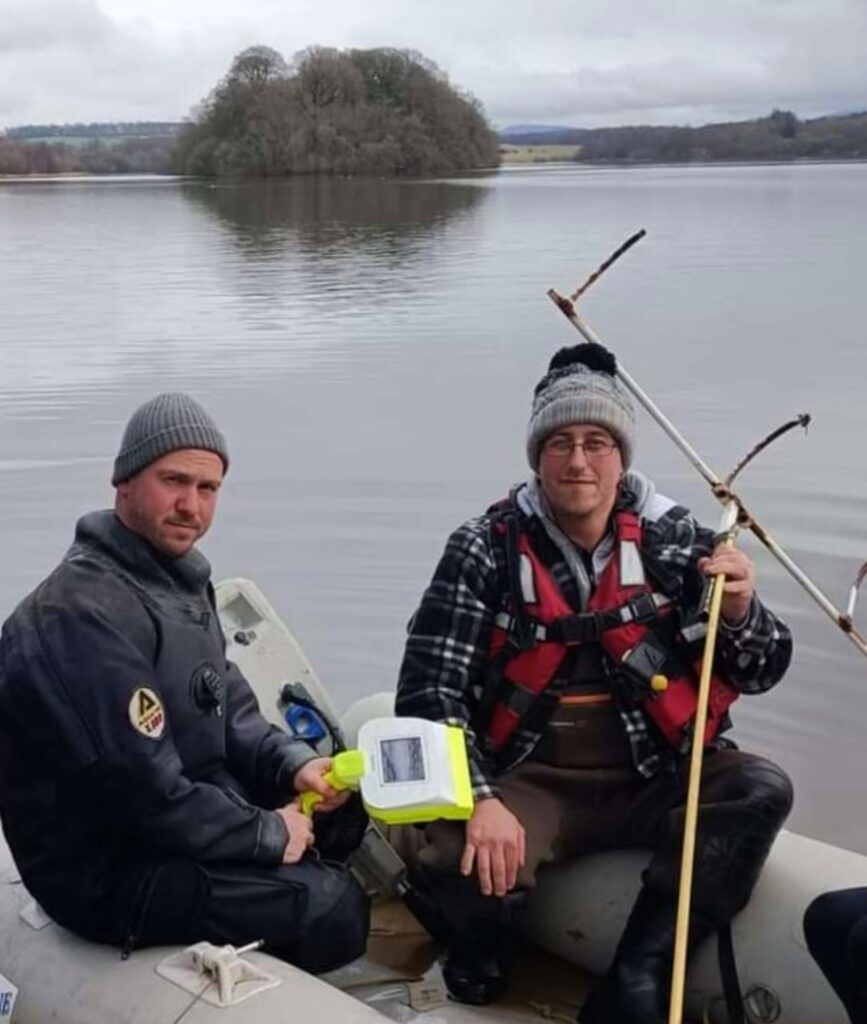
The Beneath The Surface team do not charge for their services, and any funds raised through donations are dedicated to buying equipment to make their searches safer and more effective.
In the event, because they didn’t need to pay for the AquaEye, the donations were able to be diverted to providing more of the divers with comms-equipped full-face helmets.
Ultrasound and AI
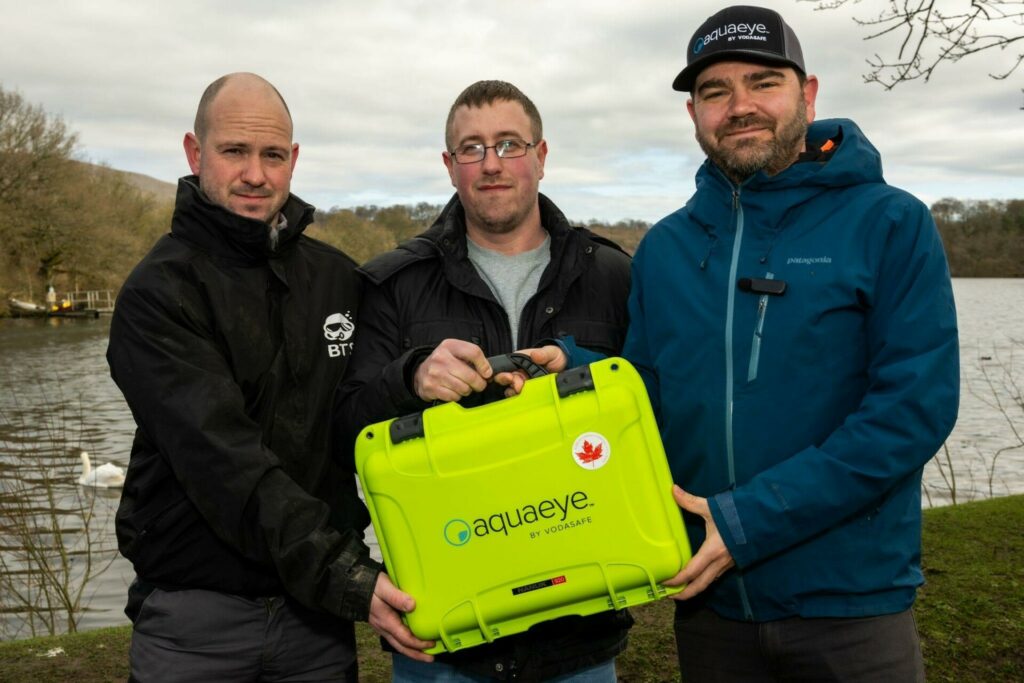
The waterproof AquaEye uses ultrasound and AI technology to identify human bodies under water, sending a sonar pulse with a 50m range and listening for the return echoes.
The device can distinguish signals that match those of a body, indicating its location on the display. It is said to operate continuously for eight hours between charges.
While the AquaEye can potentially make it easier to locate and identify bodies, its maker would also like to see it used to prevent drowning fatalities. “It is widely used by lifeguards in America, and in fact it was a lifeguard who invented it because she was frustrated by the lack of equipment available,” says Jones.
Claimed to be able to scan an acre of water in under two minutes, if deployed quickly enough he device has the potential to locate someone in difficulties under water in time to effect a rescue.
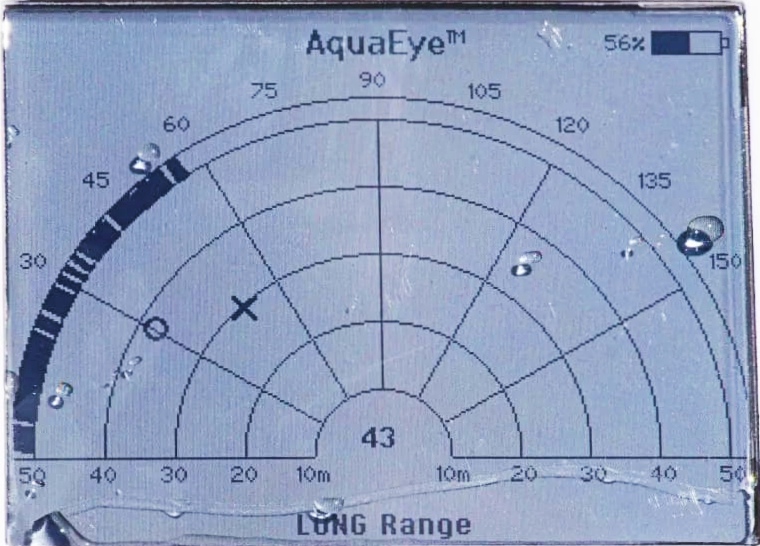
Members of Greig Stoddard’s family joined representatives of VodaSafe, Swiss-based European distributor Vogt-CTE and UK water safety campaigners Doing It For Dylan for the handover, which included demonstrations and training sessions in the loch.
“We were very impressed with it and, although it’s not a magic wand, it will be an extremely useful tool in our arsenal and could significantly reduce search time and diver time in the water,” Jones told Divernet.
“Our role as AquaEye ambassadors is simply to use it on our many searches around the UK and let people see what it can do.
We will demonstrate it to police constabularies, SAR teams, fire and rescue, lifeguards, dive-sites, holiday parks etc, and train people how to use it effectively. The more of these devices in the UK the better.”
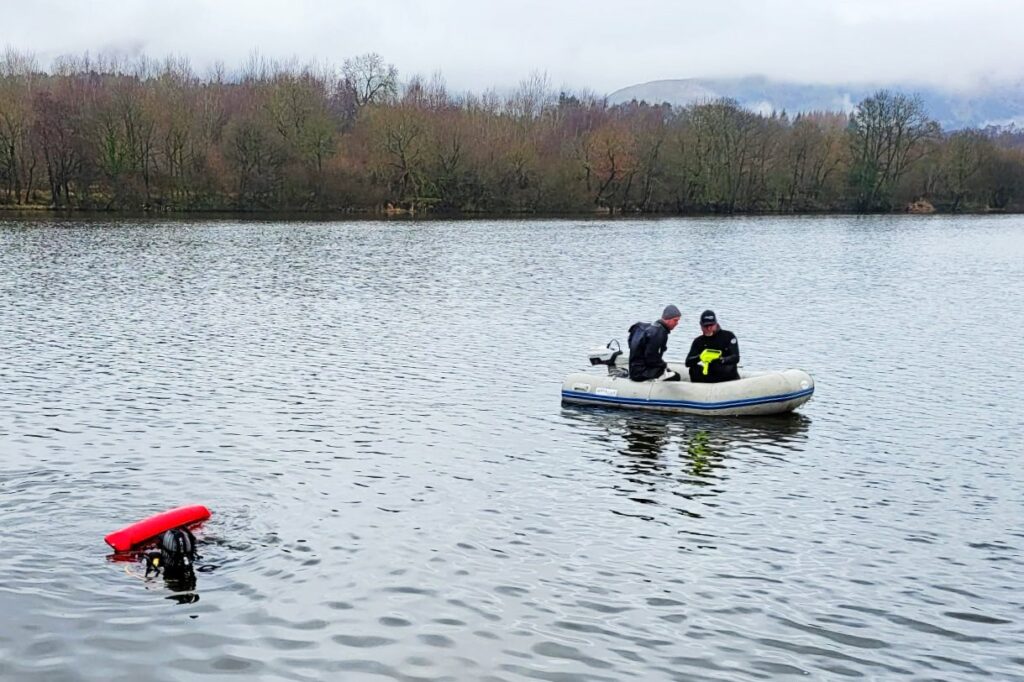
And after watching the demonstrations Beckie Ramsay, who founded Doing It For Dylan after her son drowned 17 years ago, commented: “If one of these devices were at all bodies of open water, the chance of finding the casualty quickly and efficiently would be increased massively. Meaning more lives saved.
“If one of these devices were in every town and city, we would spend a lot less time searching to recover bodies. Yesterday the AquaEye picked up a diver in the water from a pontoon 15m out… All dive-teams and search and rescue teams should have one.”
“We all want to save more lives and need to recover fewer bodies,” concluded Jones. “The more there are here, the more likely the cost is to reduce. £6,000 to an individual is very expensive but to some large businesses or government-funded organisations it’s a relatively small amount – especially if we can show that it works effectively.
“If it reduces search time for the emergency services, the wage hours saved will soon offset the cost.”
Also on Divernet: Missing persons: Volunteer divers step up in UK, Divers find teenager’s body police had missed, Divers solve two more cold-case mysteries, Body-recovery divers crack 20th cold case
